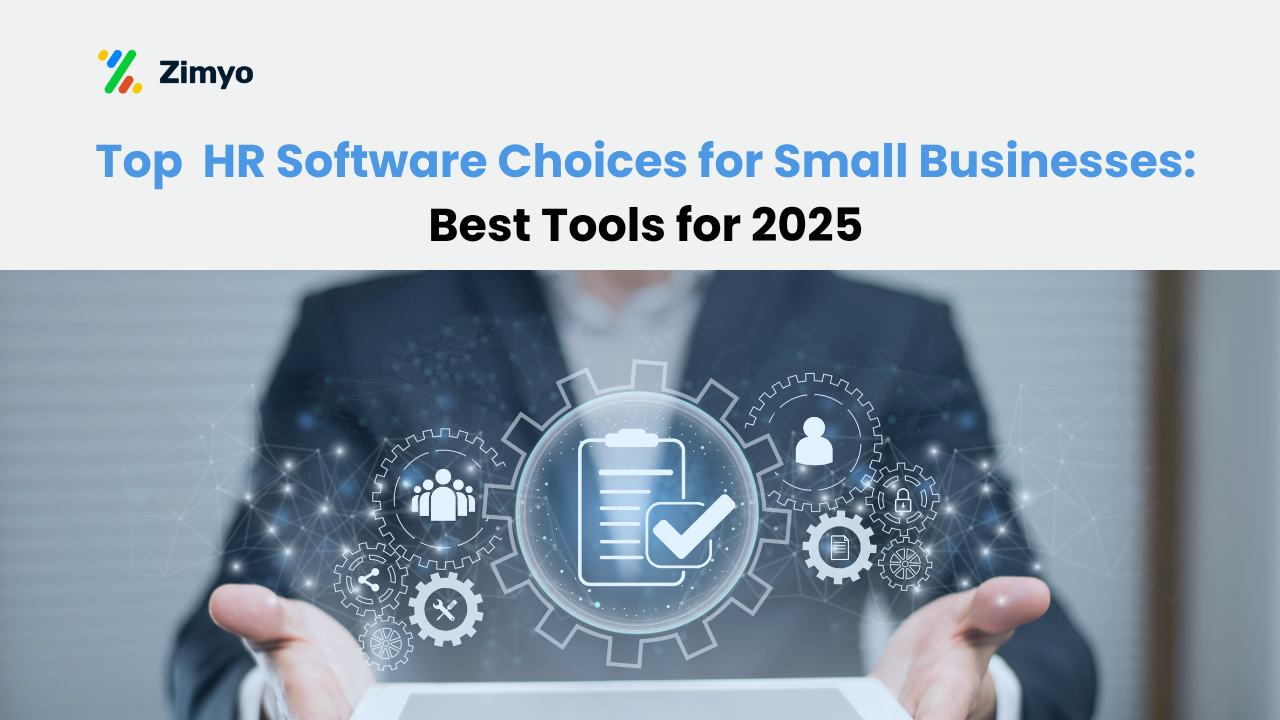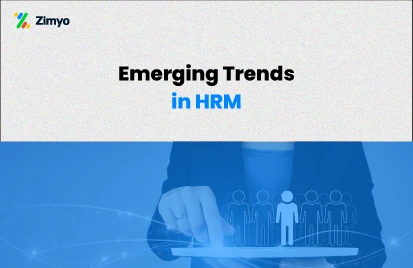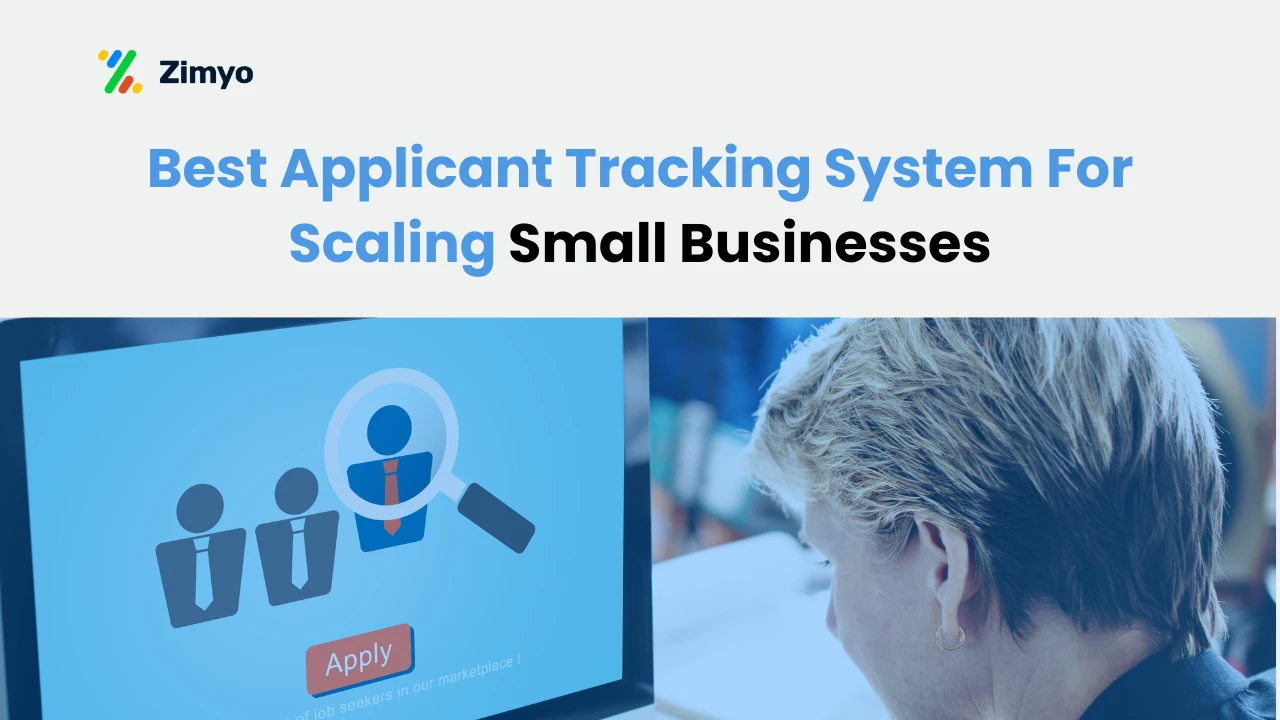Small businesses grow fast, so do their challenges of managing the workforce and handling HR functions. From hiring talent to accurate payroll to keeping up with compliance and tracking employee performance. And that is why we recommend a HR software so that your HR doesn’t get burned out.
If you’re not aware than let us explain you that current HR systems (also known as HRIS or HCM) centralize employee information, automate repetitive processes, and give HR leaders valuable insights to make data-driven decisions. So even if you’re looking for payroll software, a full employee management platform, or a specialized HR tech tool, the right system will not only save your time, reduce errors, but also improve employee satisfaction.
In this blog, we’ll walk you through:
- What an HR system is
- List of top 11 best HR systems for growing businesses
- Must-have HR software features
- A side-by-side comparison table of different tools
- How to select the right HR system
- The benefits of using HR software
- Current Trends
What Is HR Software?
Let’s start with the basic definition – An HR software is a digital platform designed to manage human resources operations including from employee onboarding to payroll processing to performance tracking and more. You might also hear it called as:
- HRIS (Human Resource Information System)
- HCM (Human Capital Management)
- HRMS (Human Resource Management System)
What are the core functions of a Top HR software for Growing Businesses:
- Centralized Employee Records – Stores personal details, contracts, benefits, and compliance documents securely in a centralized system.
- Payroll and Benefits Administration – Automate salary processing, tax filings, and benefit enrollments.
- Recruitment and Onboarding – HR software manages job postings, applicant tracking, and new hire orientation.
- Performance Management – Set goals, conduct reviews, and measure productivity.
- Time and Attendance – Track shifts, leaves, and overtime.
- Analytics and Reporting – Turn HR data into actionable insights.
For growing businesses, adopting an HR system means less time spent on admin work and more time spent on building people-first culture that drives retention and productivity.
Check Out Our Blog: HRMS vs HRIS vs HCM
List of 11 Best HR Software for Small Businesses
- Zimyo
- BambooHR
- Gusto
- Zoho People
- Rippling
- Workday
- Namely
- Paylocity
- SAP SuccessFactors
- ADP Workforce Now
- People HR
Top HR Systems for Growing Businesses: Detail
Below is a detailed look at the best HR software for 2026 including pricing, pros, and cons so you can make an informed choice.
1. Zimyo – Best All-in-One HR & Payroll Software for SMBs
Zimyo stands out as one of the top HR Software for small businesses, offering a scalable, cloud-based platform that manages everything from payroll and attendance to performance and compliance. Designed for enterprises with 100 to 10,000+ employees, Zimyo adapts to complex HR structures with ease.
Beyond payroll, it delivers features like real-time attendance tracking, tax management, employee self-service, and seamless ERP integrations. HR leaders appreciate its automation, accuracy, and customizable workflows that streamline processes across global teams.
With built-in statutory compliance for multiple countries, advanced reporting, and approval hierarchies, Zimyo is a cost-effective, all-in-one solution for large enterprises. Its strong customer support, transparent pricing, and frequent updates make it a trusted choice in 2026.
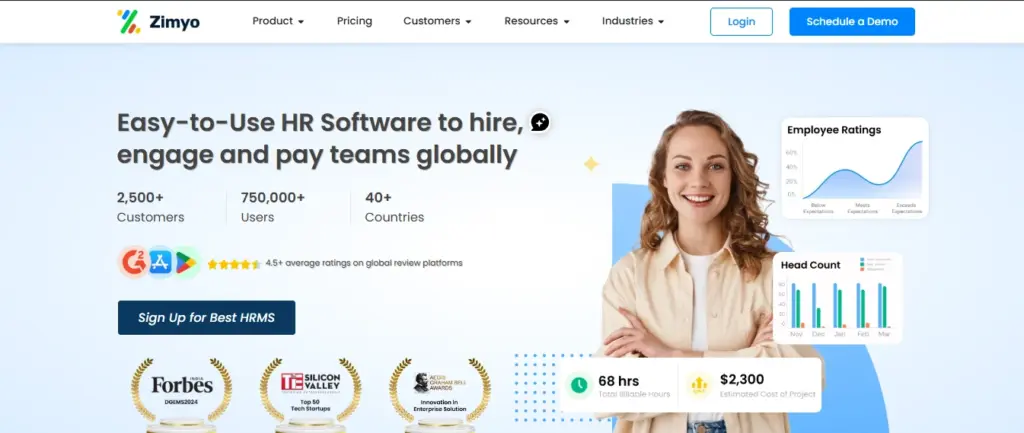
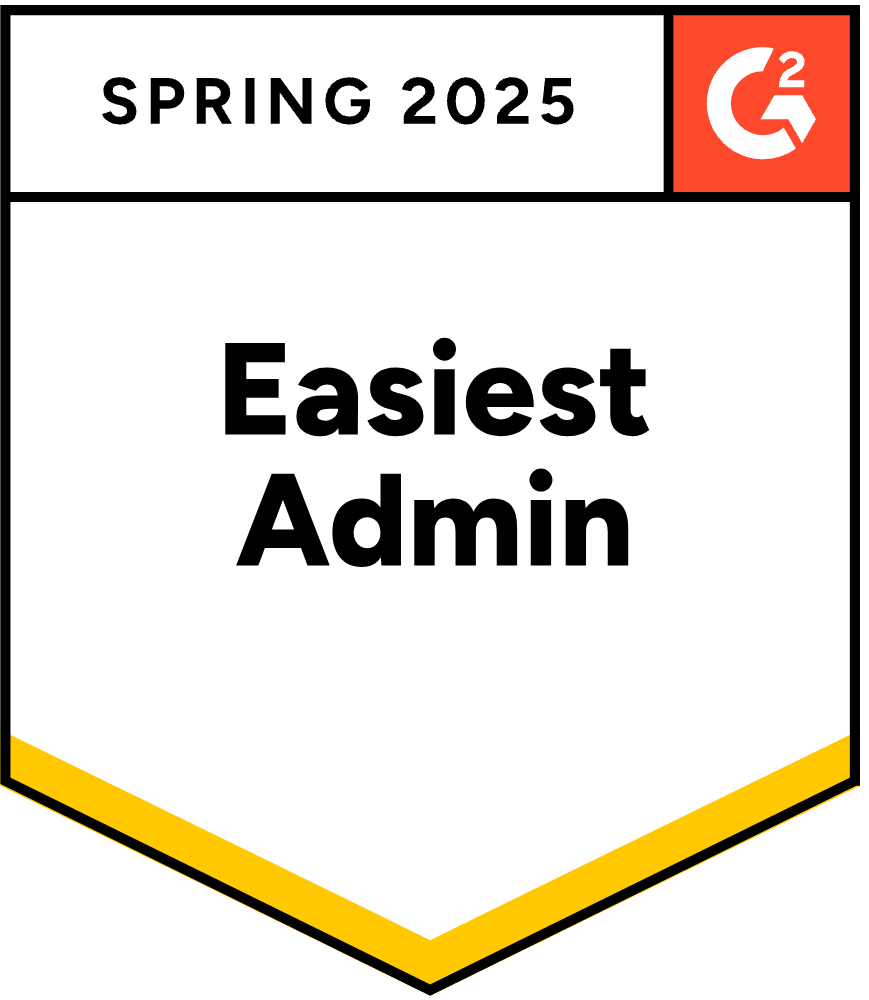
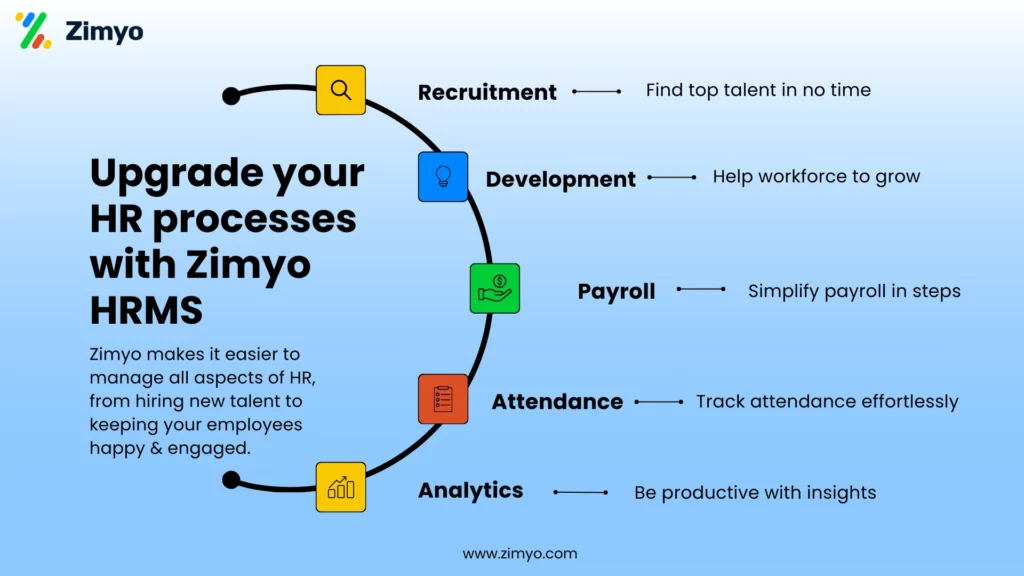
Key Features:
- Automated payroll processing & compliance
- Employee self-service portal
- Recruitment & applicant tracking system
- Performance management & OKRs
- Expense & asset management
- Advanced HR analytics
Why it fits growing businesses: Zimyo balances affordability and enterprise readiness—so whether you’re scaling from 100 to 1,000 employees or managing a multi-country payroll, it adapts without forcing a rip-and-replace of your existing systems. That combination of automation, integrations, and reporting keeps it firmly on lists of best HR software for growth-oriented companies.
Pros
- Robust payroll automation and statutory compliance (local + multi-country)
- Scalable HRIS/HCM features: recruitment, performance, attendance, analytics
- ERP & accounting integrations for end-to-end workflows
- Employee self-service and mobile access
- Strong onboarding and customer support
Cons
- Some advanced analytics & integrations reserved for higher-tier plans
- Organizations with very niche global integrations may require custom connectors
2. BambooHR
BambooHR is one of the most popular HR software systems for small and growing businesses. Known for its clean, intuitive interface, it offers tools for applicant tracking, onboarding, performance reviews, and employee record management. The self-service portal and mobile app empower employees to manage personal data, request time off, and stay updated—reducing HR’s administrative burden.
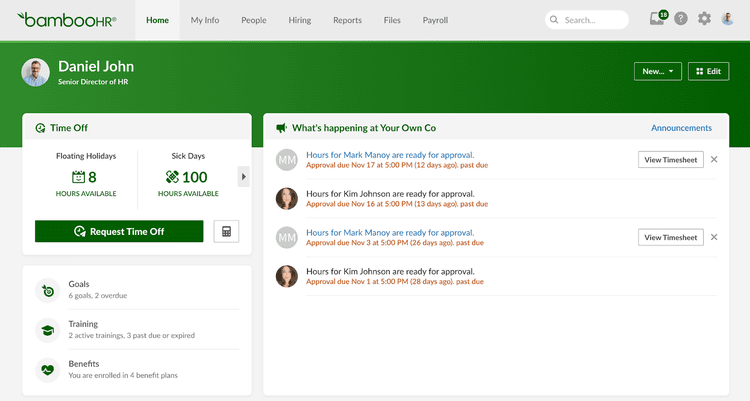
Key Features:
- Applicant tracking system (ATS)
- Employee database and document storage
- Leave management and PTO tracking
- Performance reviews and goal setting
- HR reporting and analytics
Pros:
- Easy to learn and navigate
- Excellent onboarding tools
- Great customer support
Cons:
- Lacks native payroll in some regions
- Limited advanced customization
3. Gusto
Originally designed as payroll software, Gusto has evolved into a complete HR solution for small businesses. It automates payroll, handles tax filings, and integrates benefits administration. Its clean UI and straightforward workflows make it one of the best HRIS options for teams prioritizing payroll and compliance.
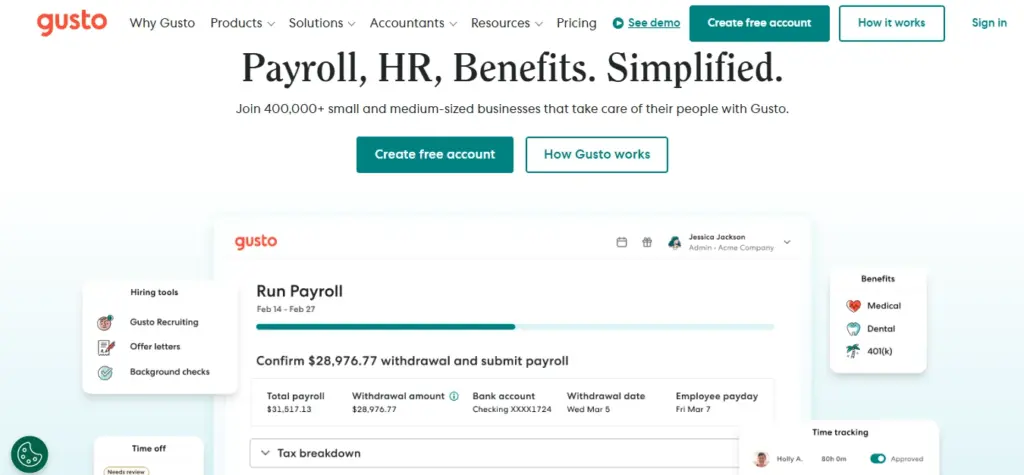
Key Features:
- Full-service payroll with tax filing
- Benefits administration (health, 401k, commuter, etc.)
- Time tracking and PTO management
- Hiring and onboarding tools
- Compliance alerts and document storage
Pros:
- Automated compliance updates
- Clear, predictable pricing
- Easy setup and onboarding
Cons:
- Not as feature-rich in performance management
- Limited customization for large enterprises
4. Zoho People
Zoho People is a budget-friendly HR software that offers core HR functions with the flexibility of custom workflows. It’s ideal for small to medium-sized companies that want a customizable HRIS without breaking the bank. Integration with the Zoho suite makes it particularly attractive for companies already using Zoho CRM, Books, or Projects.
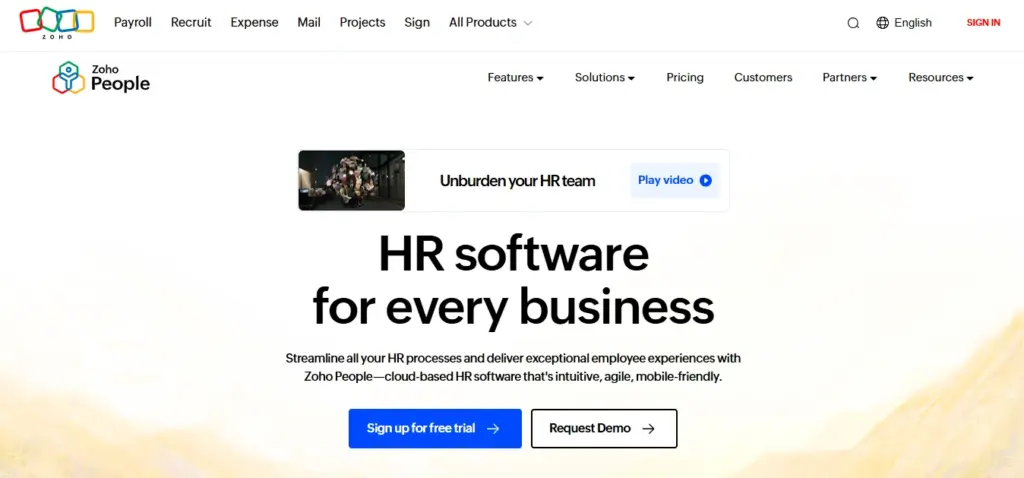
Key Features:
- Attendance and leave management
- Performance reviews and feedback cycles
- Recruitment tracking
- Custom forms and approval workflows
- Mobile app with employee self-service
Pros:
- Affordable pricing
- Easy integration with Zoho and other apps
- Highly customizable
Cons:
- Limited advanced analytics
- User interface can feel dated compared to competitors
5. Rippling
Rippling is a unique HRIS that combines HR and IT management. Beyond payroll, benefits, and compliance, Rippling can set up and manage employees’ laptops, accounts, and software from one platform. This makes it one of the most innovative HR tech solutions for growing teams with a distributed workforce.
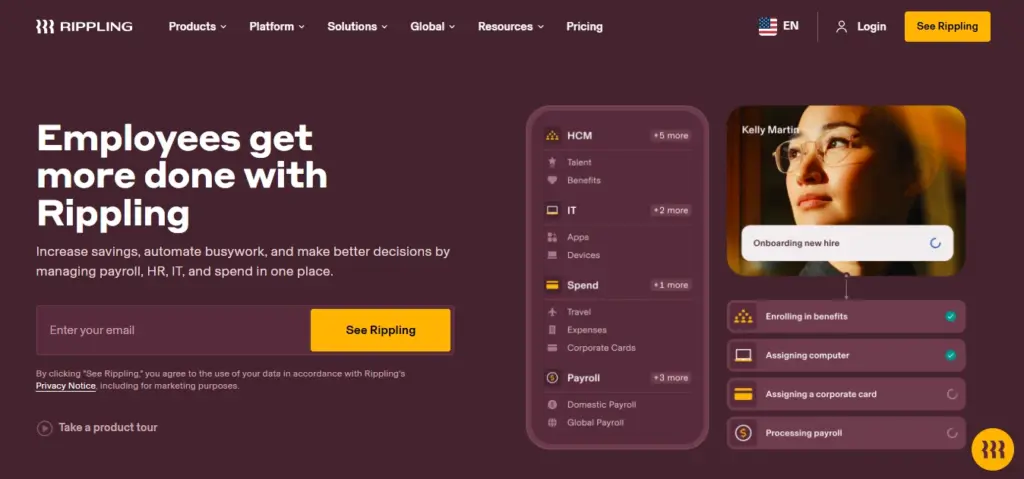
Key Features:
- Global payroll and compliance
- Automated onboarding (devices + accounts)
- Benefits management
- Workflow automation
- App and device inventory management
Pros:
- Combines HR and IT in one platform
- Highly scalable
- Strong automation capabilities
Cons:
- Learning curve for non-technical users
- Requires internet connectivity for device management
6. Workday
Workday is an enterprise-grade HCM known for advanced analytics, global payroll, and AI-driven talent management. It’s designed for large organizations that need a robust, scalable software for human resource management with deep integration capabilities.
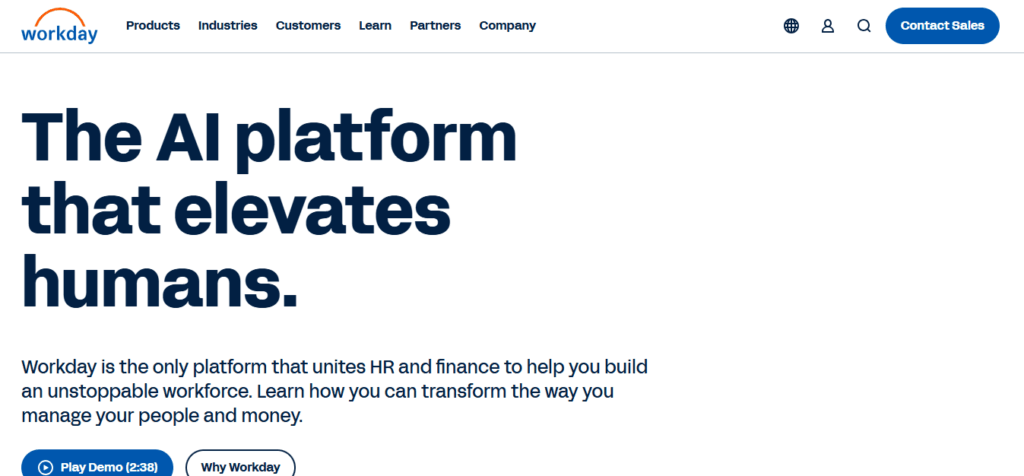
Key Features:
- AI-powered workforce analytics
- Global payroll and compliance
- Learning and talent management
- Succession planning and career development
- Cloud-based scalability
Pros:
- Extremely robust and scalable
- Strong global compliance
- Deep reporting and analytics
Cons:
- Premium pricing
- Complex setup and implementation
7. Namely
Namely offers a people-first approach to HR systems, combining payroll, benefits, compliance, and performance management. It’s known for its employee engagement focus and a clean, modern interface.
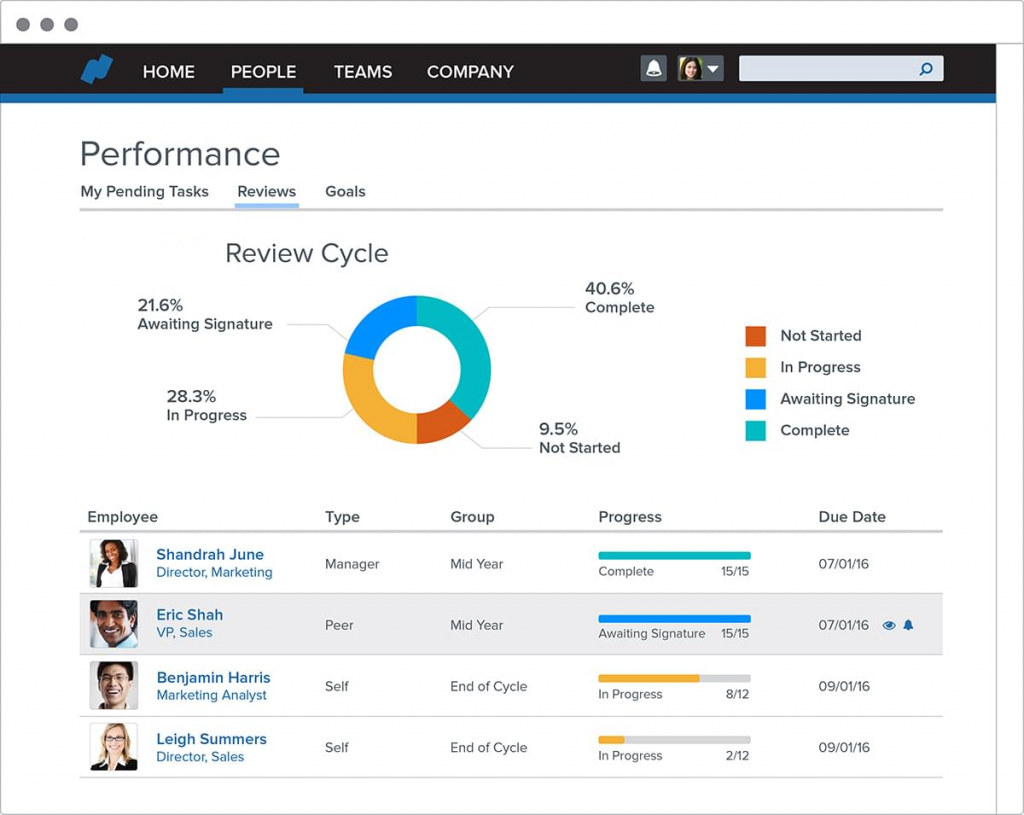
Key Features:
- Payroll and tax compliance
- Benefits administration
- Performance reviews
- HR analytics and dashboards
- Employee engagement surveys
Pros:
- User-friendly design
- Strong compliance tools for US market
- Great customer support
Cons:
- Limited international capabilities
- Some advanced features cost extra
8. Paylocity
Paylocity is an all-in-one HR and payroll software that stands out for its mobile-first design and employee engagement tools. It’s particularly useful for businesses wanting to improve internal communication and culture while managing HR processes.
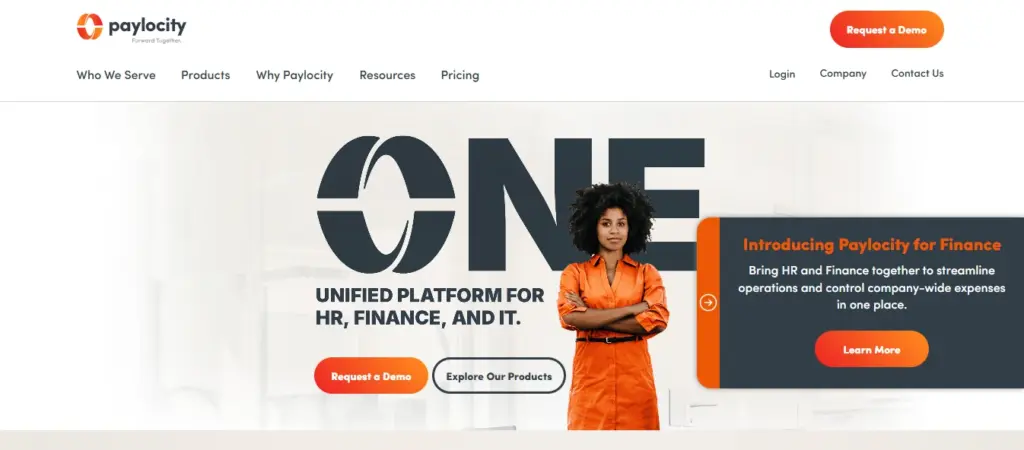
Key Features:
- Payroll and tax management
- Mobile app with social-style features
- Learning management system
- Time and attendance tracking
- Employee engagement analytics
Pros:
- Great mobile experience
- Strong social engagement tools
- Scalable for different business sizes
Cons:
- Can be overwhelming for very small businesses
- Pricing not transparent
9. SAP SuccessFactors
SAP SuccessFactors is a powerful HCM platform designed for global enterprises. It offers modular solutions, allowing companies to pay only for the features they need—making it one of the most flexible large-scale HR systems.
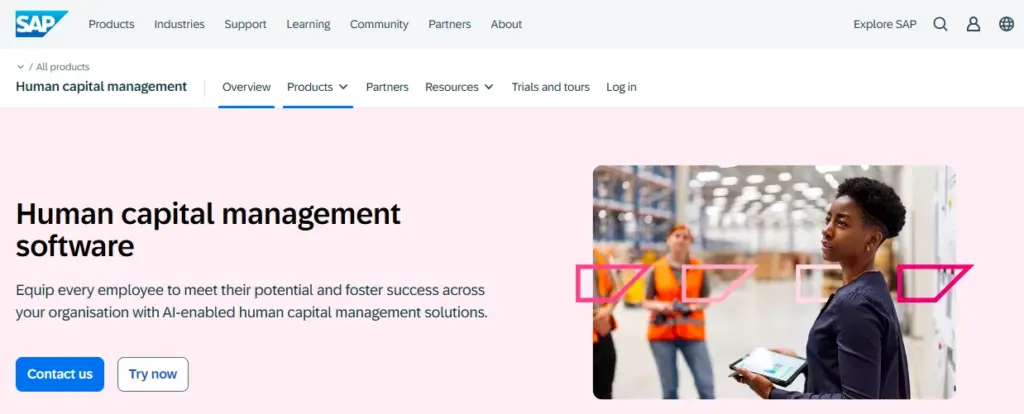
Key Features:
- Performance and learning management
- Succession planning
- Integration with SAP ERP
- AI-driven analytics
Pros:
- Highly scalable for global operations
- Rich learning and talent tools
- Strong integration ecosystem
Cons:
- Complex implementation process
- Premium cost
10. ADP Workforce Now
ADP Workforce Now is one of the most trusted names in HR software and payroll management. It offers robust compliance tools, reporting, and integrations, making it a safe choice for businesses of all sizes.
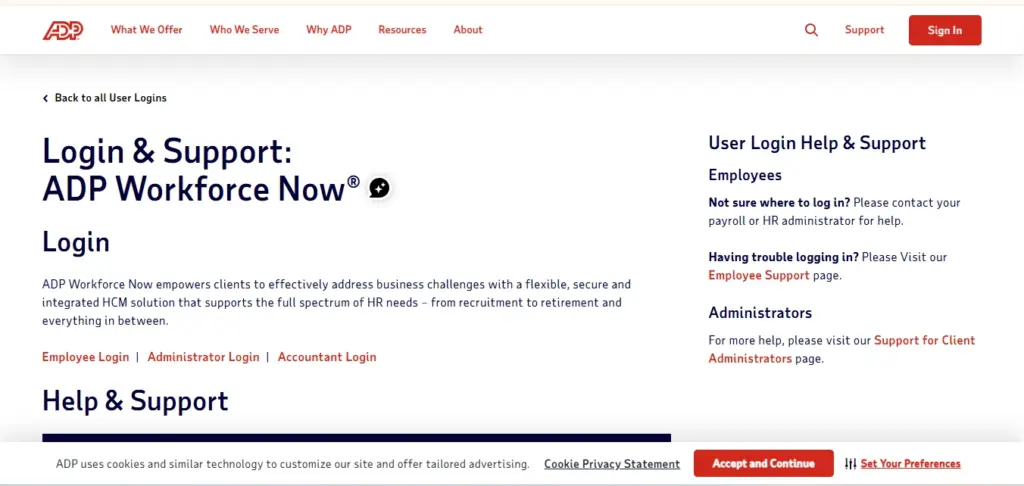
Key Features:
- Payroll with tax compliance
- Benefits management
- HR analytics
- Talent management tools
- Integration with hundreds of apps
Pros:
- Industry-leading payroll accuracy
- Excellent compliance support
- Wide range of integrations
Cons:
- User interface can feel outdated
- Add-on costs can increase total price
11. People HR
People HR is a lightweight, cloud-based HR system perfect for small teams that need essential features without the complexity of enterprise-grade solutions. It offers solid recruitment, performance, and absence management tools at a budget-friendly price.
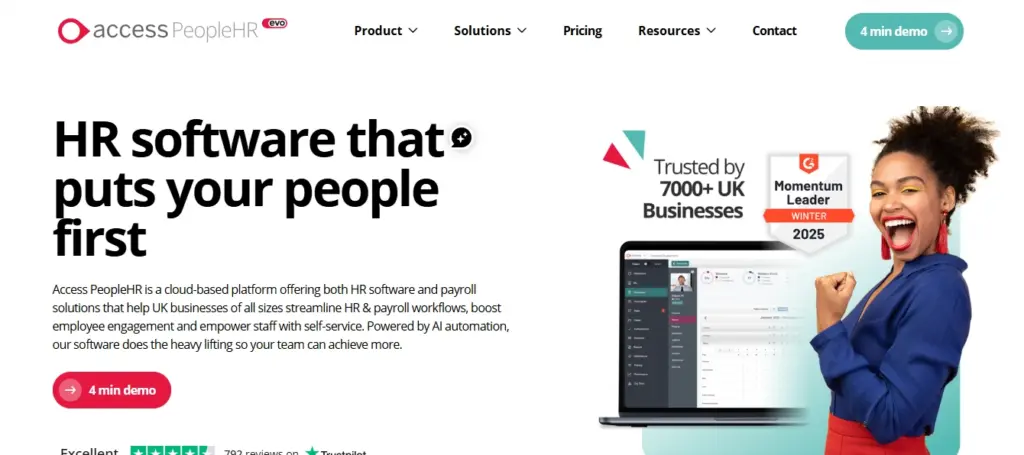
Key Features:
- Applicant tracking system
- Absence and leave management
- Performance reviews
- Employee database and records
- Mobile-friendly self-service
Pros:
- Affordable pricing
- Easy to implement
- Good core HR functionality
Cons:
- Lacks advanced features for scaling
- Limited integrations compared to competitors
Comparison Table: For Top HR Software for Growing Bussinesses
HR System | Ideal For | Core Strengths |
Zimyo | SMEs & fast-scaling startups | End-to-end HRMS, payroll, performance, engagement |
BambooHR | Small–mid businesses | Intuitive UI, onboarding, performance |
Gusto | Payroll-focused SMBs | Payroll automation, benefits integration |
Zoho People | Affordable, customizable HRIS | Flexible workflows, integrations |
Rippling | HR + IT management | Device setup, automation |
Workday | Enterprise HRM | AI analytics, global payroll |
Namely | US mid-sized firms | Compliance, engagement |
Paylocity | Mobile-first HR | Social engagement tools |
SAP SuccessFactors | Large/global orgs | Learning, performance |
ADP Workforce Now | All-size businesses | Payroll accuracy, compliance |
People HR | Small teams | Budget-friendly core HR |
Must-Have Features in an HR Software Solution
Here’s a deep dive into the essential features every HR system should offer:
1. Centralized Employee Database
A unified repository for all employee records from personal details to job history, documents, to performance reports. HR system ensures quick access and reduces the risk of lost or outdated information.
Benefits: No more scattered spreadsheets or files and everything is available at your fingertips.
2. Payroll Automation
Look for payroll software capabilities that can handle salary calculations, statutory compliance, tax deductions, and direct bank transfers.
Expert Tip: Choose systems that can integrate leave, attendance, and benefits into payroll to minimize any manual intervention.
3. Leave & Attendance Management
From automated time tracking to advanced biometric integrations, an efficient HR system should have these. And offer accurate leave tracking and approval workflows.
4. Performance Management
Goal-setting, continuous feedback, 360-degree reviews, and performance analytics help align employee performance with business objectives.
AI-driven performance insights help to identify top performers and skill gaps.
5. Recruitment & Onboarding
Applicant Tracking System (ATS) capabilities make hiring more efficient – posting jobs, screening resumes, scheduling interviews, and onboarding new hires. This feature creates a good first impression.
6. Compliance Management
HR software should automate compliance with labor laws, data protection regulations, and industry-specific requirements.
7. Employee Self-Service Portal
Giving employees direct access to update personal details, download payslips, request leave reducing HR workload.
8. Analytics & Reporting
Real-time analytics help HR leaders make data-driven decisions on employee retention, productivity, and hiring trends.
Tip: Look for customizable dashboards tailored to your KPIs.
How to Select the Right HR System
Finding the a top HR software for growing businesses almost feels like hiring a long-term business partner, it should fit in with your culture, and with organizations goals. Here’s how to you can choose wisely:
1. Define Your HR Goals
List out your core requirements: Is it payroll automation? Employee engagement? Compliance tracking? Knowing your priorities will filter your options.
2. Match Features to Business Size
A startup may not need complex global payroll, but a growing business might. Avoid overpaying for features you won’t use yet, but make sure the software can scale.
3. Check Integration Capabilities
The HR system should integrate with your existing tools—accounting software, project management tools, and communication platforms.
Example: Zimyo integrates with Linkedin, Microsoft Teams, and ZohoBooks.
4. Evaluate User Experience
A clean, intuitive interface ensures adoption across all departments. If your employees can’t figure it out without training, adoption will be low.
5. Test Customer Support
Ask about onboarding support, dedicated account managers, and SLA (Service Level Agreement) response times. Support can make or break your experience.
6. Consider Pricing Models
Some vendors charge per employee per month, others offer flat rates. Compare total cost of ownership over three years, including hidden charges like setup or training.
7. Trial Before Commitment
Always request a free trial or demo. This helps you experience the actual workflow before making a purchase decision.
Benefits of Using Top HR Software for Growing Businesses
A well-implemented HR tech solution transforms human resources from an administrative cost center into a strategic growth driver. Here’s why businesses swear by it:
1. Saves Time & Increases Productivity
Automation eliminates repetitive tasks like data entry, leave calculations, and payroll processing, allowing HR teams to focus on strategy and culture.
2. Reduces Errors
Manual processes are prone to mistakes, be it in payroll or compliance. Automated HR systems ensure accuracy and reduce the risk of costly penalties.
3. Improves Employee Experience
Self-service portals, mobile apps, and transparent processes make employees feel empowered and valued.
4. Enhances Compliance
From tax filings to labor law adherence, HR software keeps your organization legally compliant without the stress of remembering every deadline.
5. Data-Driven Decisions
HR analytics uncover patterns in hiring, attrition, and performance, helping leaders make better workforce decisions.
6. Supports Remote & Hybrid Work
Cloud-based HR software allows access from anywhere, ensuring smooth operations in distributed teams.
7. Scales with Your Business
As your workforce grows, HR software adapts, adding new modules or increasing user capacity without disrupting workflows.
Conclusion
Choosing the top HR software for a growing business isn’t just about chasing every shiny feature. It’s about finding a solution that supports your people strategy while growing with your ambitions. The right platform makes HR work easier.
Tools like BambooHR, Gusto, and Workday are built for different types of businesses. However, Zimyo stands out because it offers an easy-to-use, all-in-one platform. It combines payroll, performance management, employee engagement, and analytics under one roof. Making it a strong fit for small to medium-sized businesses aiming to grow without adding complexity.
Before taking a decision go through the must-have features section. Try free trials or demos before you decide. Check if the software works well with your current systems and if the customer support is helpful. Choosing the right tool now, like Zimyo, can help your business run smoothly, follow rules, and grow over time.
Frequently Asked Questions (FAQs)
What’s the best HR software for small businesses?
Zimyo is one of the best HR software options for small businesses, especially in India. It offers payroll, attendance, leave management, performance tracking, and compliance in one platform.
What is the most used HR software?
Globally, ADP and Workday are widely used, particularly by large enterprises. For mid-sized and large enterprises in India, Zimyo is widely adopted due to its all-in-one HR and payroll capabilities.
What are the three top HRIS systems?
Zimyo, Workday, and ADP Workforce Now are considered among the top HRIS systems. They provide strong employee data management, payroll processing, compliance support, and analytics tools.
What’s the best HR platform for rapid scaling?
Zimyo is a strong choice for rapid scaling businesses because it combines HR, payroll, performance management, and automation in a single system.


